Iranian Steel Workers Extend Strike Amid Ongoing Grievances
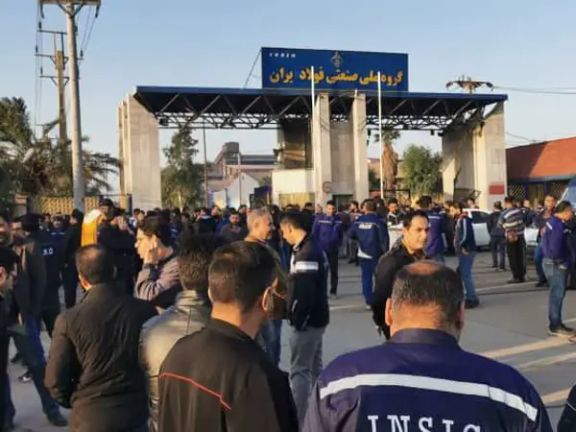
Entering its eighth consecutive day, the strike by Ahvaz National Steel Group workers has escalated as they took control of all entry and exit points of the company.

Entering its eighth consecutive day, the strike by Ahvaz National Steel Group workers has escalated as they took control of all entry and exit points of the company.
The Free Union of Iranian Workers Telegram channel reported a gathering and protest march by the workers on Saturday morning.
Videos from the eighth day of the strike depict protesting workers chanting defiant slogans refusing "to accept humiliation." In one video, a worker from Ahvaz National Steel Group declared, "Protests will persist until our demands are addressed."
The discontent in Ahvaz stems from the recent termination of 21 employees and the failure to implement job classification plans. Workers engaged with representatives from the Khuzestan province's General Department of Labor, the National Bank, and various government agencies on Thursday, as reported by the Free Union of Iranian Workers.
A published list of demands for the meeting included the "Removal of the corrupt CEO, eliminating National Bank ownership, and granting workers a role in company management." However, no outcomes have been disclosed yet. The workers also released a statement ahead of the scheduled meeting, affirming their intent to continue the strike as long as "authorities' threats and inaction persist."
On the second day of protests, an additional 17 employees faced work restrictions. The Iranian National Steel Industrial Group, once controlled by Amir Mansour Aria's investment firm, has transitioned to private ownership following legal proceedings and Aria's execution for embezzlement.
In recent months, workers across various industries, guild members, and retirees have initiated protests against the prevailing economic conditions. Unfortunately, these demonstrations have often been met with security force crackdowns.
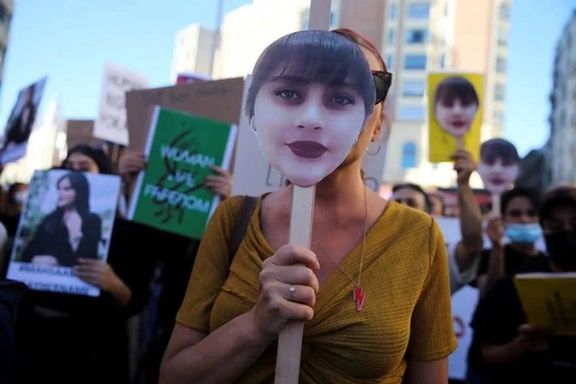
Here's what we do and don't know about Generation Z in Iran. We know that it has distanced itself from the anti-imperialist and Islamist ideas of the 1979 Revolution.
However, we do not know what Generation exactly wants for its future and what are its objectives in life.
While Gen. Z played a central role in the Mahsa revolution, we lack insights into their varying social and cultural policy perspectives, their views of the world around them, and their vision for their future in Iran. We're unaware of the plans they have for their future (aside from mass migration to the West) and how they envision that future. This knowledge gap exists due to the absence of scientific and independent attitude surveys in Iran.
However, in the absence of sufficient information about the attitudes and positions of young people, we can turn to their popular figures and the messages they convey. The government's treatment of these figures also reflects the attitude of their supporters toward the Islamist regime.
To gauge the attitudes of young people through these popular figures, we can focus on four very different personalities among the popular performers whose music has captured the attention of Generation Z: Tomaj Salehi and Amir Tataloo (currently imprisoned for their work), Sasy Mankan (in exile after his arrest in 2010 and the subsequent ban on his activities), and Mehdi Yarrahi (arrested in 2023 for posting the song "Rusarito Dar Biyar: Get Rid of Your Scarf" and currently released on bail).
All four singers have political backgrounds, ranging from involvement in the election campaigns of presidential candidates (Sasy for Mehdi Karroubi and Tataloo for Raisi) to outright opposition to the regime (Yarrahi and Toomaj). Three of them have operated underground since the beginning of their careers, unable to officially distribute their works in Iran. Mehdi Yarrahi joined the underground music scene midway through his career. This illustrates that the government does not want to hear their voices, nor does it want the youth to hear them.
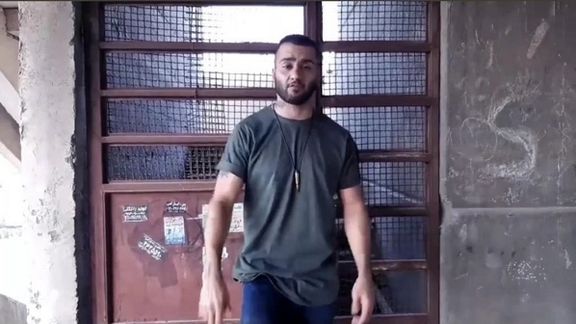
"Look for A Rat Hole" and "Omen": Aggressive regime change
The works of Toomaj Salehi, aged 33, echo the sentiments of a generation of young Iranians who ardently and persistently seek the downfall of the regime. Toomaj's music found its way into the cars of people taking to the streets during the 2022 protests. His arrest was a direct result of his outspoken views against the current government. His supporters squarely blame the Islamist regime for the suffering and discrimination in Iran and vehemently call for the overthrow of the clerical establishment. Toomaj articulates the necessity of rebellion against the country's occupiers. In his song "Omen," he portrays the fate of regime officials after their overthrow, while in "Look for A Rat Hole," he envisions their fate during the overthrow.
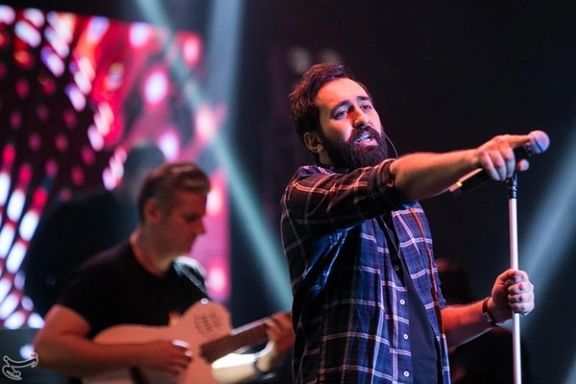
"Get Rid of Your Scarf ": the transition from reformism to soft regime change
Mehdi Yarrahi (42 years old) comes from a religious background, but he has not remained silent against discrimination, poverty, and exploitation by the religious government. He has been banned from publishing his singles for many years because he supported protesters against the policies of the Islamic Republic. In 2017, Yarrahi was banned from working and filming for six months due to wearing the uniform of protesting workers, who were arrested in 2018, during a concert and releasing the critical music video “Pareh Sang” (Rock). After dedicating one of his songs called "Farewell After Leaving" to the victims of the November 2019 protests and his defying statements in concerts in Ahvaz and Karaj, his activities were banned. Yarrahi fully supported the nationwide protests of 2022 with works such as "Sorud-e Zan" (Woman Anthem) and "Sorud-e Zendegi" (Life Anthem) and his epic works were sung by protesters in the streets. He has become a kind of reformist who supports the civil resistance to end the Islamist regime, and unlike Toomaj, does not want to bring about the conditions for the "Look for A Rat Hole” for IRGC and Basij members.
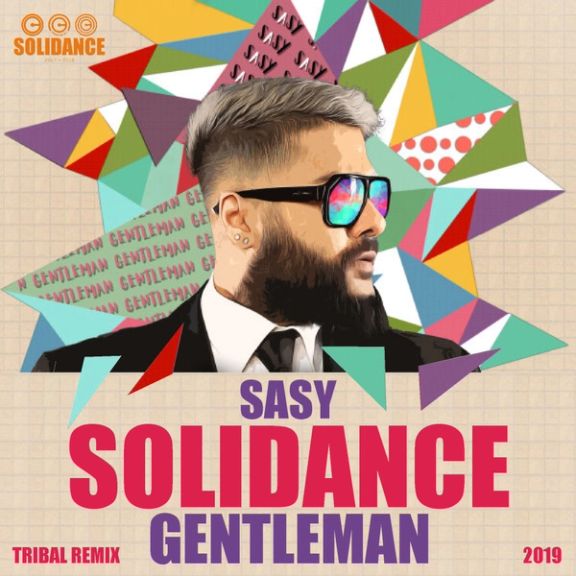
"Gentleman": laying the groundwork for socio-cultural change
Sasan Heydari, with the stage name Sasy Mankan (35 years old), is popular among elementary and high school students in Iran. His songs titled Gentleman, Doctor, Tehran-Tokyo, and Leila’s Brothers were welcomed by tens of millions in Iran. Sasy, who emigrated to the United States after his arrest and work restrictions, has been very successful in producing popular music while criticizing and exposing the hypocrisy of the religious regime in Iran. Those young Iranians who don't want the totalitarian role of the government, religious education and Islamization in their lives love Sasy's works. Sasy does not take a political stance in his music and does not defend a certain class. He even shuns political activism, but his works are popular with those who oppose the lifestyle of the ruling class imposed on others. The “grey stratum” (people who are silent while being against the regime) welcomes his works the most.

"Having Fun" and "Hell": Rebellion against all norms, including dignity and fighting
Amir Hossein Maqsoodlou, known by his stage name Tataloo and aged 36, attempted to carve a niche for himself in the music scene of the Islamic Republic by aligning with political factions, singing propaganda songs, and lauding Khamenei. However, these efforts yielded little interest from the regime and failed to connect with the youth as intended. Consequently, Tataloo faced government arrest on three occasions but persisted in his work by relocating first to Dubai and then to Istanbul. Along the way, he avoided directly confronting the regime and took the path of carelessness fun and even promoting obscenity (Lady Waziri). His literature has come closer to street literature, which Islamists and leftists call vulgar. For young people, this is a kind of rebellion against the status quo and they welcome it. He is the promoter of hugs, kisses, heaven, sin, fear, and forbidden (Forbidden) beside profanities in a frozen world (Hell). Like tens of millions of young Iranians, he asks the surrounding society to “let him be himself.” He reflects on the feelings of tiredness, burning, impatience, imprisonment, and depression of Iranian youth in his songs. Confusion and lack of responsibility are reflected in his lyrics too.
Despite their diverse social and political stances, all four singers and their tens of millions of fans share a common sentiment: that the Islamist regime hinders their ability to live freely, revitalize themselves, and express their true selves. While the generations that came of age in the 1980s, 1990s, and 2000s, represented by artists like Sasy, Tataloo, and Yarrahi, once believed that dealing with the Islamist regime through certain reforms was feasible, today's Generation Z has adopted different strategies and perspectives. The Iranian Generation Z is determined to extricate the Islamist government from their lives, whether through street protests or simply by distancing themselves from its influence in their mental world, including through the use of cannabis.
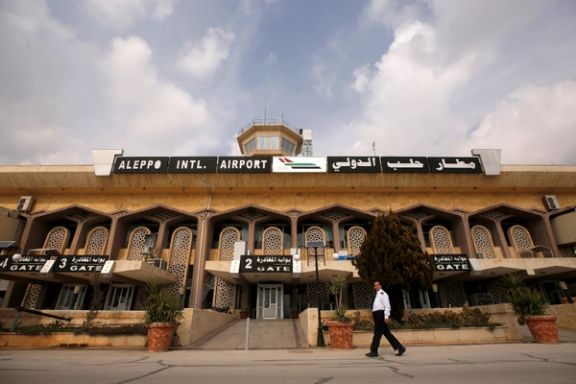
Israel targeted Syria's Aleppo with an air strike on Saturday, which caused some material damage there, the Syrian defense ministry said in a statement.
The Syrian Observatory for Human Rights (SOHR) reported that Al-Nairab Military Airport near Aleppo and targets in its vicinity were also attacked.
SOHR stated that there are warehouses and centers belonging to Iranian militias in the areas hit by missiles launched from warplanes.
The airports themselves did not sustain damage, SOHR said.
Six explosions were heard in the Nairab airport area, while one missile landed in the area of Aleppo International Airport.
Reuters reported that the Israeli military declined to comment. While Israel has launched hundreds of air strikes against Iran-affiliated forces in Syria in the past decade, it usually refuses to confirm or deny its involvement.
Most of these attacks have targeted weapons depots belonging to the Iranian military network in Syria, and arms transfers destined for Iran-backed forces, particularly the Lebanese Hezbollah. Israel has vowed not to allow more entrenchment by Iranian forces in Syria.
The latest strikes seem to be related to heightened tensions in the region amid the Israeli military operation against Hamas.
On December 25, a suspected Israeli air strike killed the top Iranian IRGC general, Razi Mousavi, at his residence near Damascus. Iran has vowed revenge for the targeted killing, similar to a US air strike that killed Iran’s Quds Force commander Qasem Soleimani in January 2020 in Baghdad.
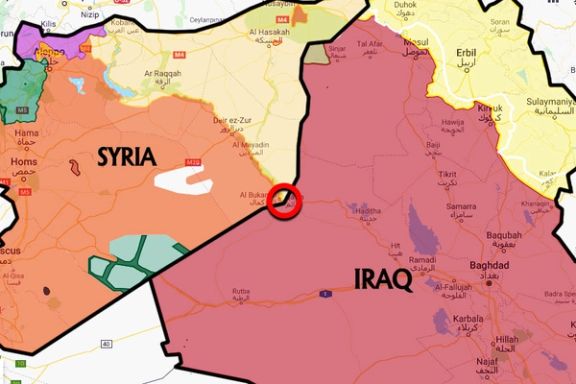
Iraqi officials have confirmed earlier reports that unidentified warplanes attacked Iran-aligned militia targets in Syria, near the Iraqi border early Friday.
The attack resulted in four confirmed casualties, as stated by a local commander from Iraq's Popular Mobilization Forces (PMF). A Syrian war monitor reported that as many as 19 were killed, including four members of the Lebanese Hezbollah.
Iran International reported on the attack on Friday, but there was no official confirmation at the time.
While the commander denied harm to groups' fighters near the Syrian border, the strikes specifically targeted an eight-truck convoy, leading to the destruction of at least four trucks and three buildings affiliated with an Iranian-backed militia group, according to sources with connections to Syrian border officials.
Iran-aligned forces, including Hezbollah, hold influence across significant areas in eastern, southern, and northwestern Syria, as well as in suburbs surrounding the capital. Suspicions point toward Israel, known for its historical targeting of Iran-linked sites, although the US denies any involvement, emphasizing the absence of defensive strikes overnight.
Despite its reluctance to directly get involved in the Gaza war, Iran persists in utilizing proxy forces across Syria, Lebanon, and Yemen to target both US and international interests, with a record of over 100 drone and rocket attacks. Criticism is mounting against President Joe Biden for perceived leniency toward Iran, prompting calls for a more robust approach from former US officials and Republican lawmakers.
Iran denies any role in the attacks by militants, asserting that planning and execution are independently carried out by its affiliated armed groups. Despite escalating rhetoric, Iran, facing economic challenges, exercises caution to avoid significant losses.

Iranian media and politicians continued to criticize the government for its close ties with Russia, while it supports UAE claims on three islands in the Persian Gulf.
Moscow has repeatedly sided with the United Arab Emirates during summits with Arab states regarding claims on Abu Mousa and Greater and Lesser Tunb islands, that have been Iran’s sovereignty since 1971.
The conservative Jomhouri Eslami [Islamic Republic] newspaper, which is always critical of President Ebrahim Raisi's policies, in its Wednesday's issue asked the government why has it “turned the Kremlin into its Mecca.”
The daily asked the government: "If you are not going to expel Russia's ambassador and downgrade your relations with Moscow, at least explain why you turn to the Kremlin rather than to Mecca."
The newspaper was referring to the Muslim practice of facing Mecca when they want to talk to God in their daily prayers.
The daily went on the say, “The fact that the Foreign Ministry had to remind the Russian government twice that it has undermined Iran's territorial integrity showed that Tehran is not going to opt for a serious confrontation with Moscow." The conservative newspaper added that "summoning Russia's charge' d' affairs by the Foreign Ministry was less than serious." The daily added: "When they do it twice, they want to tell you that it was not a mistake." The newspaper then called for a treatment that would make Russia regret its stance.
Supreme Leader Ali Khamenei and President Ebrahim Raisi who have been seriously humiliated by Russia's stance, are also under attack from Iranian social media users. One user wrote that in case the issue of ownership of the three islands is raised at the UN Security Council, Russia and China have already revealed their stance in favor of the United Arab Emirates. Ironically, in such a situation, only a veto by the United States, which Iran perceives as its arch enemy, can save Tehran from serious trouble and damning humiliation.
Meanwhile, former Foreign Minister Ali Akbar Salehi said in an interview with Entekhab news website in Tehran that it would be catastrophic for Iran to tie its destiny entirely to its ties with Russia, China and even the United States. "Iran should stand in the middle of those three countries and benefit from opportunities and their weaknesses."
In another development, in an attempt to make sense of Russia's position, Iranian foreign policy analyst Mehdi Motaharnia said that "By getting closer to the United Arab Emirates, Russia is telling the West that Iran is no longer its strategic ally. Nonetheless, Moscow uses the Iran card whenever it needs to."
Motaharnia said that by siding with the UAE and Arabs, Russia tries to create an international atmosphere in favor of its own national interests. In its interactions with the United States, Russia claims to be a close ally of Iran, he argued. However, in the endgames, Russia usually uses this apparent proximity with Iran as a winning chip and a tactic to weaken US positions and promote its own national interests. Motaharnia went on to warn Iranian officials that even if Russia was genuinely an ally of Tehran, the world of politics is not a place for ideological attitudes.
Iran’s Supreme Leader Ali Khamenei has displayed a dislike of the United States and the West throughout his 34-year rule, showing affinity with Russia and China, while often receiving less than the desired results.
Earlier in the week, possibly to reduce the angry mood in Iran, Foreign Minister Hossein Amir-Abdollahian claimed that his Russian counterpart Sergey Lavrov emphasized Russia's respect for Iran's territorial integrity in a telephone call. On Wednesday, the press in Tehran revealed that Lavrov had not said that.
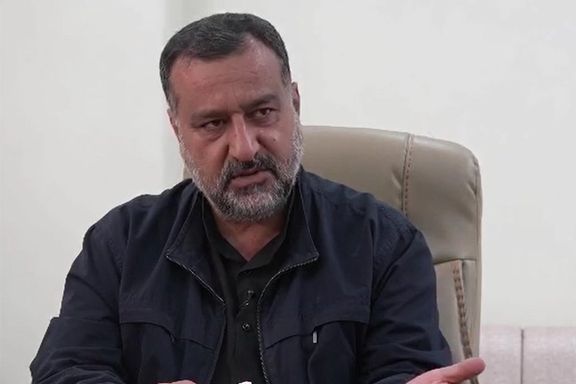
Officials and government-controlled media In Iran continue to praise the contributions of senior IRGC officer Razi Mousavi, who was killed in Syria on December 25.
Mousavi was killed in an air strike allegedly conducted by Israel. He is being praised for his role in strengthening Iran's proxy forces in the region that Tehran calls the "Axis of Resistance." His death is seen as a blow to the Iranian regime amid Israel's war against Hamas.
Palestinian militant groups, the Syrian regime, the Lebanese militant group Hezbollah and Yemen's Houthis are the main forces aligned with and supported by the Iranian regime.
The IRGC-affiliated Tasnim news agency published an interview with one of Mousavi's colleagues, identified only as Haj Hassan, on Saturday. Tasnim cited "security considerations" for not disclosing his full name.
According to Haj Hassan, Mousavi played a crucial role in transferring assistance to proxy forces through relations with Syrian and Lebanese officials. He was also credited with creating conditions for the ‘resistance axis’ that allowed for the production of essential items locally.
"The transfer of equipment and the necessary technology for production within the resistance axis was one of Mousavi's characteristics during these years. In challenging conditions, he implemented fundamental strategies to sustain resistance over the course of three decades," Haj Hassan added.
Thousands gathered for his funeral in Tehran's central Imam Hossein Square, where mourners passionately chanted anti-Israel and anti-American slogans. Yellow flags bearing the message "I am your opponent" were waved by the crowd, directly targeting Israel.
During the funeral, Iran's Supreme Leader, Ali Khamenei, led prayers and paid tribute to Mousavi, further solidifying the official narrative surrounding the senior IRGC official's role and impact.